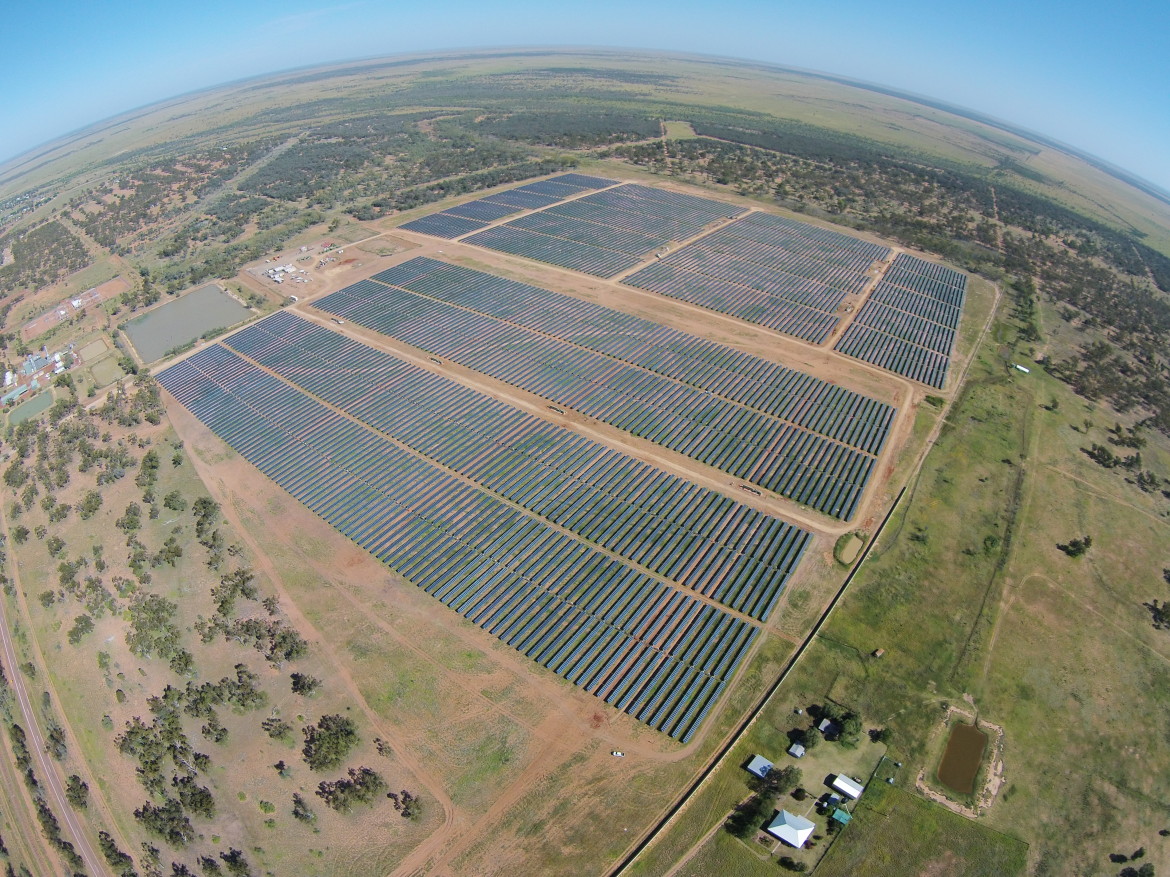The Queensland government is seeking to convene an urgent industry roundtable after a Court of Appeal upheld the Supreme Court’s ruling to invalidate a contentious solar installation regulation. The now invalid rules, which were introduced by the government mid May, required mounting, locating, fixing and removal of PV panels at solar farms larger than 100 kW to only be undertaken by licensed electricians – a job usually performed by general labourers.
Proper consultation is what the solar industry hoped for in the first place. However, the government fast-tracked the regulation despite warnings that it would put hundreds of local jobs at risk and could bring some projects to a standstill.
The regulation was challenged by Maryborough Solar – owners of the 35 MW Brigalow Solar Farm in southern Queensland – on the basis that it was inconsistent with the Electrical Safety Act (2002). Under the Act, the mounting of electrical equipment was not classified as electrical work, meaning that it could easily be performed by general labourers and trades assistants as it has been to date.
Only a week after the Brigalow project developers initiated the legal battle with the support of the Clean Energy Council (CEC) and Master Electricians Australia, the Supreme Court declared the state government regulation invalid. The Queensland government swiftly lodged an appeal against the court decision, but its challenge was dismissed with costs on Tuesday.
“The Palaszczuk Government accepts today’s decision of the Court of Appeal but is disappointed by the result,” Industrial Relations Minister Grace Grace said. “Today’s decision is about a technical legal ruling and does not deal with the substantive safety reasoning behind the making of the solar farms regulation.”
Grace said the ruling clearly highlighted that Queensland’s electrical safety laws had not kept pace with new and emerging technologies, including large-scale solar farms.“The Electrical Safety Act has not undergone any significant changes in 17 years. A great deal of technological change and the emergence of new industries have occurred since this time,” she said.
While industry bodies and installers have repeatedly warned the “new safety code” was set to cost jobs, delaying installations and making some projects unviable, the state government argued they had struck the right balance between meeting their goal of 50% renewable energy by 2030, and worker and community safety. “The safety risks for workers installing solar panels on large-scale solar farms, including electrical shock and fire, are very real and remains a significant concern for the Government,” Grace said.
“The evidence is also very clear – the Electrical Safety Office and Workplace Health and Safety Queensland have conducted more than 200 audits of large-scale solar farms across Queensland and issued 81 statutory notices for a range of breaches of work health and safety and electrical safety laws,” she said.
For the solar industry, as underlined on numerous occasion, safety is paramount. However, mounting and fixing unconnected solar panels to a rail qualifies as mechanical work – not electrical one.
“It is utterly ridiculous that only a qualified electrician should be allowed to lift a solar panel and not a trade assistant,” Master of Electricians Australia CEO Malcolm Richards said earlier, adding that an easy solution is to simply classify a solar panel as a piece of electrical equipment. “The only way to come up with effective regulation that enhances safety while not driving the cost of business through the roof, is to engage with the electrical industry.”
Fresh consultations are now around the corner with Electrical Safety Commissioner Greg Skyring expected to schedule a roundtable. “The solar farm regulations provided clarity and guidance for the industry and it is great shame it has been knocked out by a technicality – the safety risks remain despite today’s decision,” Skyring said in reaction to Tuesday’s ruling.
“During the stakeholder consultations I was very concerned to hear that unlicensed workers were commonly ‘creeping’ into the territory of performing electrical work, such as the earthing of installations, cabling and removal of connected panels,” he added.
With over 3,200 MW of solar capacity now under construction or financially committed, stakeholders and industry bodies are eager to discuss this and similar issues. “Any future changes should be formulated in consultation with the industry and all relevant stakeholders, and should be based on evidence,” Anna Freeman, the CEC’s Director of Energy Generation, said earlier. “We look forward to working with the Queensland Government to help achieve our shared aims of safely delivering on its 50% renewable energy target by 2030.”
This content is protected by copyright and may not be reused. If you want to cooperate with us and would like to reuse some of our content, please contact: editors@pv-magazine.com.









By submitting this form you agree to pv magazine using your data for the purposes of publishing your comment.
Your personal data will only be disclosed or otherwise transmitted to third parties for the purposes of spam filtering or if this is necessary for technical maintenance of the website. Any other transfer to third parties will not take place unless this is justified on the basis of applicable data protection regulations or if pv magazine is legally obliged to do so.
You may revoke this consent at any time with effect for the future, in which case your personal data will be deleted immediately. Otherwise, your data will be deleted if pv magazine has processed your request or the purpose of data storage is fulfilled.
Further information on data privacy can be found in our Data Protection Policy.